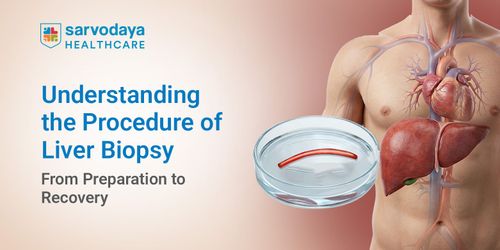Celebrated globally every year on June 21, International Yoga Day 2025 is a reminder of the age-old Indian tradition that continues to benefit millions worldwide. Yoga is not just another physical exercise; it is a holistic practice that integrates the mind, body, and spirit, promoting balance and harmony in daily life.
In this blog, we explore the benefits of yoga, its importance in daily life, and how its combination with physiotherapy is transforming healing experiences.
The Benefits of Yoga: A Scientific and Traditional Perspective
Yoga has long been valued for its ability to strengthen the body and calm the mind. Today, science backs these claims, and many doctors and therapists now recommend yoga as a complementary approach to maintaining overall health.
Below are some key benefits of yoga that support both physical and mental health:
- Improves flexibility and posture: Regular yoga practice helps stretch tight muscles and correct postural imbalances, reducing the risk of strain and injuries.
- Enhances respiratory and cardiovascular function: Breathing techniques (pranayama) and poses that open the chest improve lung capacity and support heart health.
- Boosts immunity: Yoga stimulates the lymphatic system, reduces stress hormones, and enhances immune function, which contributes to better disease resistance.
- Reduces stress and anxiety: Mindfulness and meditation in yoga help calm the nervous system, promoting emotional well-being and reducing anxiety levels.
- Supports hormonal balance: Yoga is known to positively influence hormone regulation, especially in individuals dealing with thyroid, menstrual, or metabolic disorders.
- Aids in pain relief and joint health: Certain yoga poses can ease discomfort in conditions like arthritis, back pain, and frozen shoulders.
The Importance of Practising Yoga Daily
The key to experiencing the true benefits of yoga lies in consistency and mindful engagement with the practice. Even a few minutes of yoga each day is very beneficial to health.
Here are some reasons why making yoga a daily habit is essential:
- Promotes emotional stability: Practising yoga daily helps regulate mood, decrease irritability, and build emotional resilience through mindfulness and breath control.
- Encourages discipline and focus: Establishing a yoga routine trains the mind to be more present, improving attention span and productivity throughout the day.
- Supports digestion and detoxification: Certain asanas stimulate abdominal organs, aiding digestion and promoting natural detox processes.
- Maintains mobility with age: As we grow older, regular yoga keeps joints and muscles agile, reducing stiffness and improving overall mobility.
Yoga for Pain Relief and Rehabilitation
Today, many rehabilitation programs across India include yoga as part of their protocol for pain management and post-surgery recovery. This gentle, adaptive approach aligns perfectly with the goals of physiotherapy, creating a synergy that accelerates healing.
When used thoughtfully, yoga for pain relief and rehabilitation can provide the following advantages:
- Reduces chronic back and neck pain: Yoga poses that focus on spinal alignment and core strengthening relieve strain on the back and promote better posture.
- Supports recovery from injuries: Slow, guided movements help injured muscles regain strength and flexibility without overexertion.
- Aids in post-surgical healing: Post-operative patients, especially those recovering from joint replacements or C-sections, benefit from light yoga stretches integrated into physiotherapy sessions.
- Improves circulation and muscle tone: Gentle yoga flows increase blood flow to muscles and tissues, speeding up recovery and reducing inflammation.
- Calms the nervous system: Yoga's meditative components support a relaxed healing environment, easing discomfort and reducing pain perception.
Physiotherapy and Yoga: A Healing Alliance
Many experts now recommend a combination of physiotherapy and yoga for patients seeking long-term recovery and pain management. While physiotherapy provides targeted rehabilitation, yoga enhances these outcomes by improving circulation, mental calmness, and flexibility.
Here are some of the ways this healing alliance works:
- Enhances mobility and joint function: Physiotherapy targets specific movement patterns while yoga improves surrounding muscle support and flexibility.
- Speeds up post-injury rehabilitation: Yoga’s mindful stretching reduces stiffness and complements physiotherapy exercises to restore normal movement faster.
- Improves body awareness: Yoga encourages patients to listen to their bodies, helping them avoid overexertion and practice physiotherapy more mindfully.
- Reduces reliance on medication: With better circulation, relaxed muscles, and reduced stress levels, patients often report needing fewer painkillers.
- Prevents re-injury: A regular yoga routine helps maintain strength and flexibility, reducing the risk of repeated strain or injury.
Sarvodaya Hospital’s Holistic Approach to Wellness
Sarvodaya Hospital has always been at the forefront of patient-centred care, combining traditional wisdom with advanced medical expertise. Recognised as the best physiotherapy hospital in Faridabad, Delhi NCR, Sarvodaya offers a personalised and holistic approach to wellness that includes yoga-based rehabilitation programs.
Their approach includes:
- Individualised therapy sessions: Custom programs combining physiotherapy and yoga designed for pain relief, post-surgical recovery, or chronic condition management.
- Integrated wellness model: Patients benefit from a comprehensive care plan that includes physical therapy, nutritional advice, lifestyle modifications, and yoga.
- State-of-the-art rehabilitation unit: Equipped with the latest technology to support a range of recovery needs in a calm and healing environment.
- Compassionate and coordinated care: From the first consultation to long-term recovery, patients receive guidance and support every step of the way.
Conclusion
As we celebrate International Yoga Day 2025, it’s the perfect time to reflect on how yoga can enrich our lives physically, mentally, and emotionally. Its simplicity, accessibility, and proven effectiveness make it one of the most powerful self-care tools we can adopt.
With expert guidance, you can get the maximum benefit from your yoga practice. Sarvodaya Hospital Faridabad, recognised as the best physiotherapy hospital in Faridabad, Delhi NCR, brings together the ancient wisdom of yoga and the precision of modern physiotherapy. The integrated approach, supervised by the top physiotherapist in Delhi NCR, ensures patients receive tailored care that prioritises long-term recovery and whole-body wellness.
Make this International Yoga Day your turning point. Explore the importance of yoga in daily life and embrace its healing potential.




























